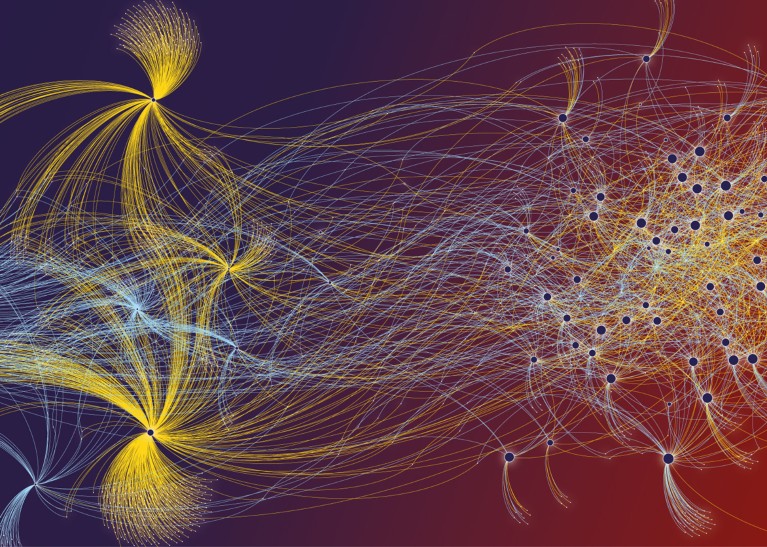- NEWS FEATURE
- Clarification 29 June 2020
How Facebook, Twitter and other data troves are revolutionizing social science

Scientists studied data from thousands of social-media users to analyse clusters perpetuating extremism. Credit: Minzhang Zheng and Neil Johnson
Access options
Access Nature and 54 other Nature Portfolio journals
Get Nature+, our best-value online-access subscription
$29.99 / 30 days
cancel any time
Subscribe to this journal
Receive 51 print issues and online access
$199.00 per year
only $3.90 per issue
Rent or buy this article
Prices vary by article type
from$1.95
to$39.95
Prices may be subject to local taxes which are calculated during checkout
Nature 582, 328-330 (2020)
doi: https://doi.org/10.1038/d41586-020-01747-1
Updates & Corrections
-
Clarification 29 June 2020: This feature has been updated to change Markus Strohmaier’s affiliation to his primary one.
References
Sekara, V., Stopczynski, A. & Lehmann, S. Proc. Natl Acad. Sci. USA 113, 9977–9982 (2016).
Obermeyer, Z., Powers, B., Vogeli, C. & Mullainathan, S. Science 366, 447–453 (2019).
Blumenstock, J., Cadamuro, G. & On, R. Science 350, 1073–1076 (2015).
Salganik, M. J., Dodds, P. S. & Watts, D. J. Science 311, 854–856 (2006).
González, M., Hidalgo, C. & Barabási, A. Nature 453, 779–782 (2008).
Anderson, C. ‘The end of theory: The data deluge makes the scientific method obsolete.’ (Wired, 23 June 2008).
Johnson, N. F. et al. Nature 573, 261–265 (2019).
Realpe-Gómez, J., Vilone, D., Andrighetto, G., Nardin, L. G. & Montoya, J. A. et al. Games 9, 90 (2018).

 The scant science behind Cambridge Analytica’s controversial marketing techniques
The scant science behind Cambridge Analytica’s controversial marketing techniques
 Global problems need social science
Global problems need social science
 The epic battle against coronavirus misinformation and conspiracy theories
The epic battle against coronavirus misinformation and conspiracy theories








